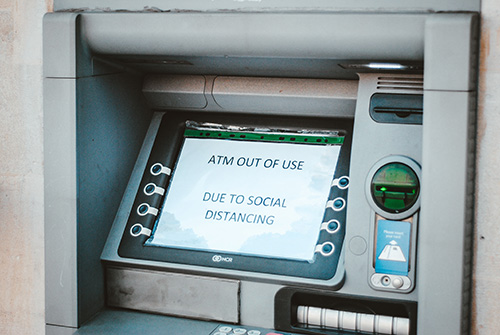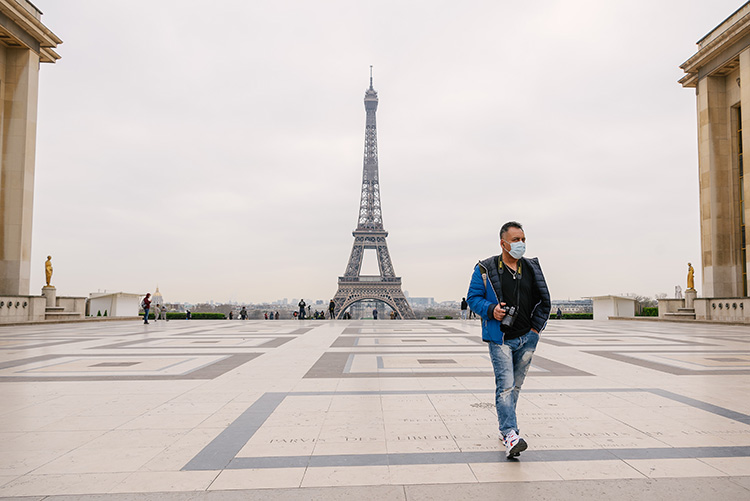
It has been less than a year since COVID-19 struck, and it has fundamentally changed our lives. On March 11, 2020, the outbreak of the novel corona virus struck countries all around the world. COVID-19 is characterized by a rapid human-to-human transition and the potential of asymptomatic cases to still infect others. Since its outbreak until now, COVID-19 has claimed 900,000 lives worldwide.
At the outbreak, the world was thrown into preventing the spread of the virus, affecting all countries to approved unprecedented restrictions, isolating many. From March-November, almost all nations around the world were in lockdown. This quarantine state or social distancing or sheltering in place implemented social isolation methods that changed countless of people’s lives.
COVID-19 became a global and unpredictable phenomenon that stopped all travel, from plane to bus. No one could gather, and all must shelter in place. Wherever they were, they could not move to another place. No more live gatherings of more than one person; no more schools; no more work. Touch became taboo while nations remained closed.

The pandemic has changed how we work, how we learn, and how we interact. Social distancing has become the norm, and The New Normal is how we live now. We have been forced to become more virtual, as an effect of COVID-19. No more Christmas parties, gatherings, or evenings out with friends. Now, in the new normal, we are forced to use platforms such as Google Meet, Zoom and Skype, to see our loved ones.
This quarantine state also changed our patterns of health. Due to the socially distant situation the pandemic has thrown us in, many experienced stress, anxiety, depression, and loneliness. According to a study by Cleveland Clinic, the respondents experienced 33% stress, 30% anxiety, 24% depression, and 24% loneliness. Though men were most likely to die from COVID, women were the ones reporting higher levels of anxiety.
The new normal
The quarantine has also changed our image as a global world. Everyone is now forced to wear a face mask outside. The lasting motif of these quarantines are a face with a face mask on, an item that first seemed alien to us, but now is our shield from a world faced with health issues. Perhaps it will never seem comforting to us, maybe it will remain alien, but pictures of today will forever be marked by the face mask.
Perhaps another image of this virus is the computer. With everyone contained in their homes, soaking up the WIFI was the number one priority for many. Delivering their meals, their medicines, and their necessities, mobile apps and websites provided what was needed. Inside of a restaurant in the block, you got a restaurant on the laptop.
Schools remained closed for the remainder of the worldwide lockdowns. When they came back up, they were almost all online, the majority operating on Google classroom and other web platforms, while others opening up for a few days per month with the rest on web platforms. Students remained home and worked on their assignments on modules. Online learning became the norm, and looks like it’s here to stay, at least for another few years.

Religious worship was done at home, without holiday preparations. In a world without Passover Seder or a Christian Easter, all faiths had to make do with hosting their live events online for the world to watch. Masses attended mass religiously on Facebook Live, YouTube Live, and other avenues. Many world religions are now learning how to expand opportunities for people to gather online and to give sermons from afar.
The health care sector was very much changed, of course. Newly trained and newly graduated nurses and doctors were on demand, many taking on far larger shifts than they could handle. Monetary incentives for new nurses as well as retired nurses were offered to cover the gap of health care professionals. The health care systems of many countries also changed, many offering health care at a much cheaper cost.
These crisis moments necessitate a more sophisticated use of technology, a less polarized peoples and a revived appreciation for the outdoors. Although its people were suffering, Mother Earth became a new haven, one untouched and untrampled on by strangers. Although people were polarized in their homes, they were able to touch one another’s lives on the internet even without the use of touch. And although the internet capabilities of other countries were not up to par, a more sophisticated internet worldwide could change the ballpark of what’s to come.
Not everything can become virtual, but most everything has. Skype, Facetime, Email, is now part of ordinary life, and it seems one cannot escape the internet. However, now comes the onus to reinvent and redirect communities through the internet. Cellist Yo-Yo Ma, Performer Lin Manuel Miranda, and countless of celebrities began and continue to host video campaigns, such as fundraisers or performances, live for audiences to see. A more ethical, informed, and empathetic entertainment is emerging because of the pandemic, one that ushers community
engagement in the form of likes and shares. It seems as if they are reminding us that we are not alone, but alone together.
Lastly, the drive to science and medicine is becoming bigger than it once was. Is it the end of the post-truth, anti-science era of the last decades that pushed us against one another? Is it the start of a new era of medically informed decisions and scientifically backed facts? It looks to be so, as many governments are relying on the health sector for their decisions. Worldwide, many are becoming hopeful as to how science will provide us the cure for our ailments, including the corona virus.
If the novel corona virus has showed us, it is that change can occur fast; what matters is how we react. And we have proved resilient in the face of illness, generous in the face of calamity, and ingenious in the face of danger. We have shown that we can act fast even when the rules were always changing, that we can grow even when the odds are against us. We know, as a people, that there will be more challenges that face us in the future. And although this was a huge challenge, we still shall overcome it.
